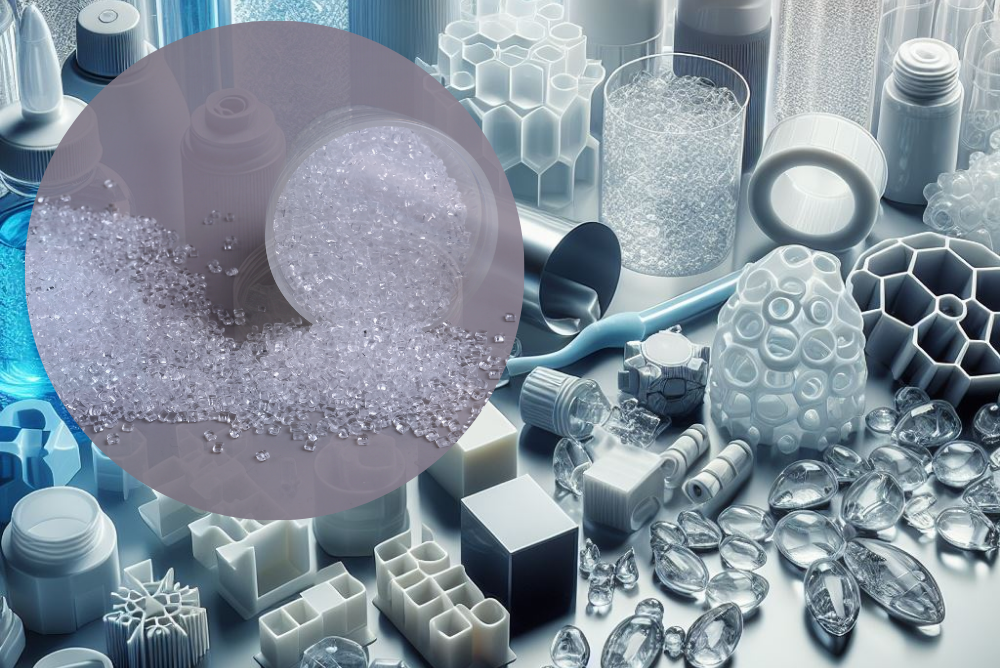
Polycarbonate resins are a highly versatile thermoplastic polymer with an impressive range of applications across multiple industries. Known for their excellent impact resistance, transparency, and heat tolerance, these materials are widely used in the production of automotive parts, electrical components, medical devices, and construction materials. Whether you're a professional in the industry or just curious about plastics, understanding the key characteristics of polycarbonate resins is essential. In this post, we’ll explore their properties, common uses, and important considerations when selecting them.
Key Properties of Polycarbonate Resins
What makes polycarbonate resins so popular? Here are some of their most notable features:
- Flame Retardancy: These resins are inherently flame-resistant and meet various fire safety standards, making them ideal for use in electrical enclosures and other fire-sensitive applications.
- Chemical Resistance: They offer good resistance to oils, greases, and diluted acids, which makes them suitable for use in medical equipment, automotive parts, and chemical storage containers.
- Transparency: Polycarbonate has high optical clarity, making it a preferred choice for items like windshields, safety goggles, and lenses where visibility is crucial.
- Impact Resistance: One of the standout features of polycarbonate is its toughness. It can withstand significant impacts without breaking, which is why it's used in safety helmets, bulletproof glass, and protective gear.
- Heat Resistance: These resins can endure high temperatures, making them suitable for use in electronic components and automotive parts that generate heat.
- Dimensional Stability: Polycarbonate maintains its shape and size even under varying temperatures, ensuring reliable performance in different environments.
- Weatherability: They resist UV degradation and maintain their mechanical and optical properties over time, even when exposed to sunlight and harsh weather conditions.
Common Applications of Polycarbonate Resins
Thanks to their versatility, polycarbonate resins are used in a wide array of industries, especially in electronics. Some of the most common applications include:
- Manufacturing LED lighting fixtures due to their light transmission and optical clarity.
- Creating protective cases for smartphones, tablets, laptops, and cameras.
- Producing electrical connectors, terminal blocks, and switches.
- Used in the production of printed circuit boards (PCBs).
- Utilized in the manufacturing of sockets, relays, and other electronic components.
Important Factors to Consider When Choosing Polycarbonate Resins
When selecting a polycarbonate resin for your project, several factors should be taken into account to ensure optimal performance:
- Mechanical Properties: Look at tensile strength, flexural modulus, and impact resistance to determine how the material will perform under stress.
- Chemical Resistance: Consider the environment your product will be exposed to and choose a resin that can withstand those conditions.
- Application Requirements: Determine if your project needs high impact resistance, UV stability, or flame retardancy to narrow down your options.
- Processing Compatibility: Different resins have different melt flow rates, so make sure the one you choose is compatible with your manufacturing process, such as injection molding or extrusion.
- Color and Appearance: Some polycarbonate resins come in a variety of colors, while others are limited. Choose based on your aesthetic needs.
Future Trends in Polycarbonate Resin Development
The future of polycarbonate resins looks promising, with a growing focus on sustainability and performance improvements. Manufacturers are increasingly looking for eco-friendly alternatives by using renewable resources and improving recycling processes. Additionally, research is ongoing to enhance the durability and lifespan of these materials. Key trends include:
- Enhanced Performance: Scientists are working to improve heat resistance, scratch resistance, and other properties to make polycarbonate even more versatile.
- Advanced Manufacturing Techniques: Innovations in polymerization methods and processing technologies like 3D printing are opening up new possibilities for customization and efficiency.
- Lightweight Solutions: With demand increasing in sectors like automotive and aerospace, there’s a push to develop lighter versions of polycarbonate without compromising quality or performance.
Why Buy from a Trusted Supplier?
Understanding the properties and applications of polycarbonate resins is just the first step. To get the best results, it's crucial to source them from a reliable supplier. Companies like Mid Continent Plastics offer high-quality recycled polycarbonate resins with decades of experience in the industry. They provide flexible volume options to suit your specific needs, ensuring you get the right material for your project. Whether you’re looking for durability, clarity, or sustainability, choosing a trusted supplier ensures you receive consistent quality and support.
Laser Cleaning Machine,Metal Rust Removal Laser Cleaning Machine,Laser Cleaning Machine For Rust Removal,Paint Removal Laser Cleaner
Herolaser , https://www.herolasermachine.com